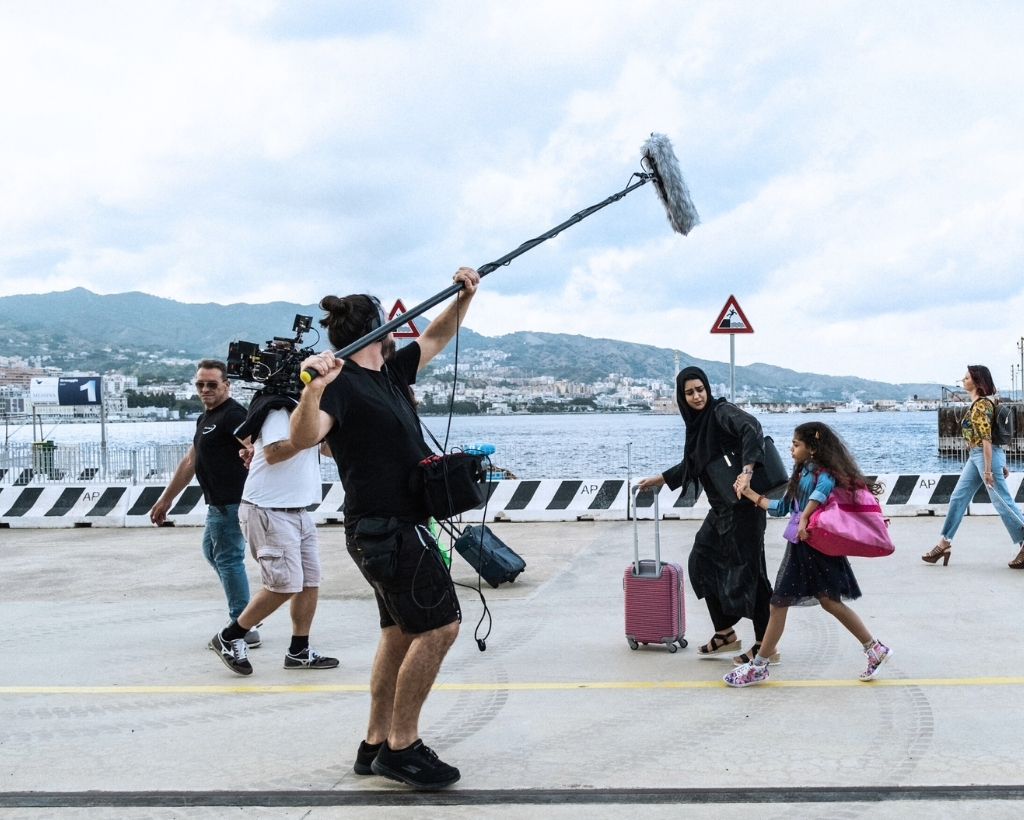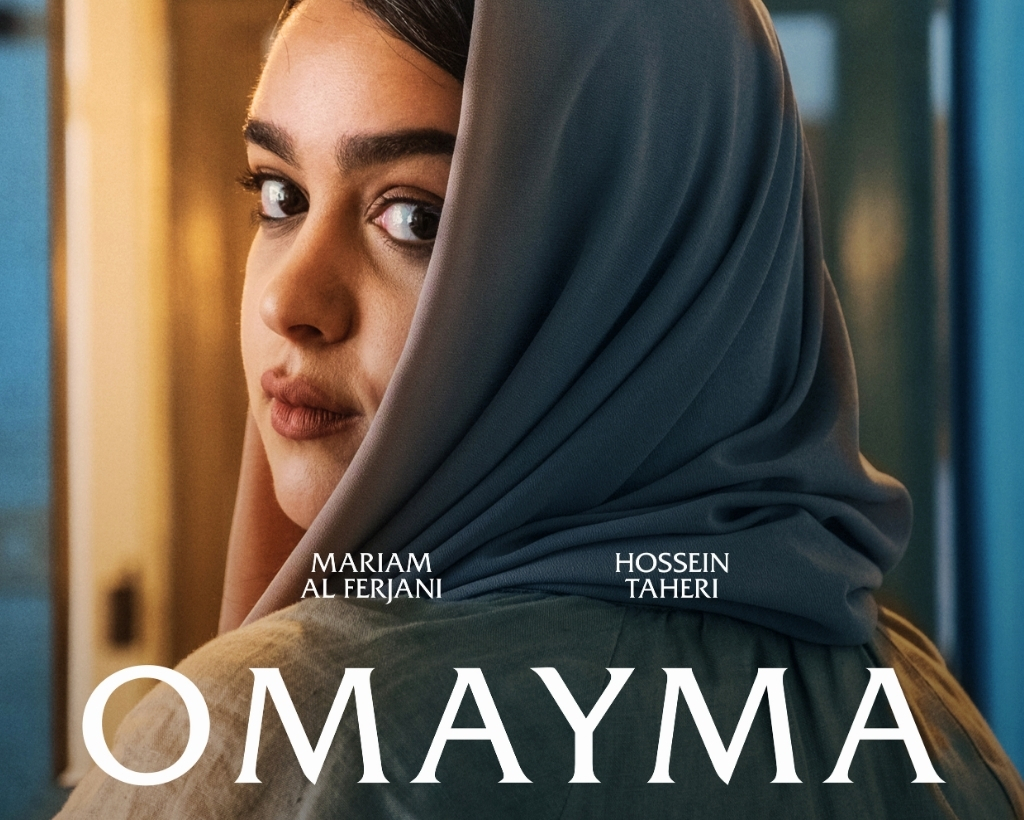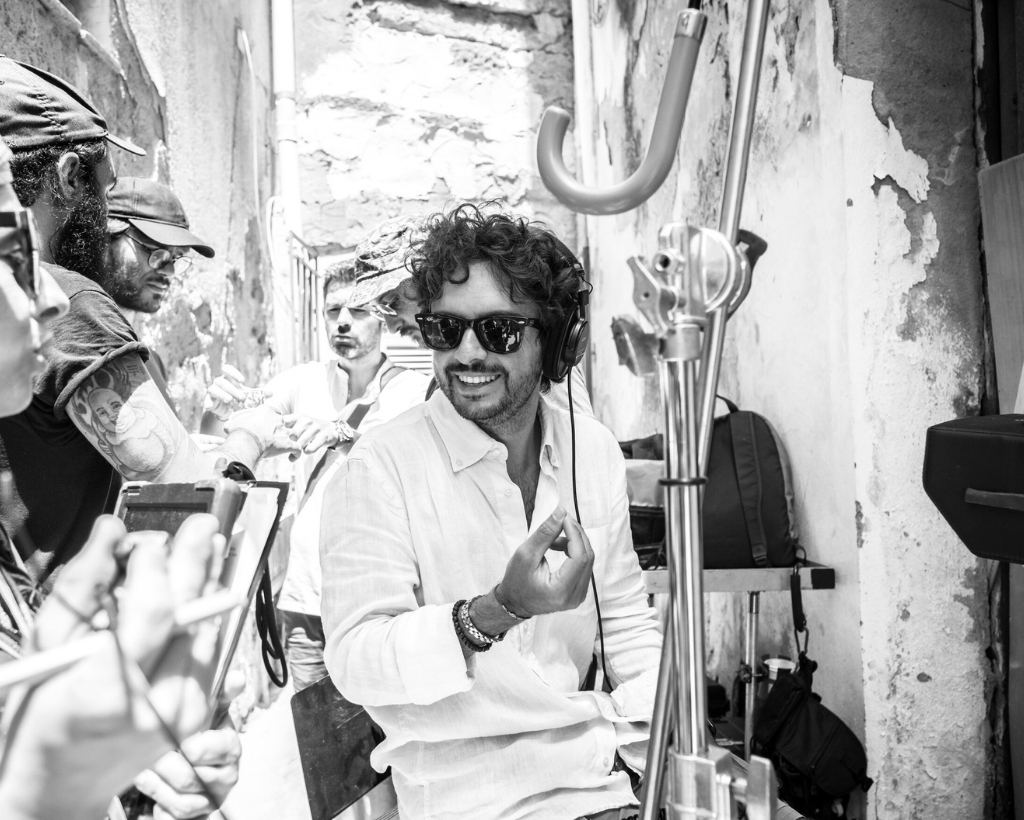Omayma: Giving voice to the silenced
An interview with filmmaker Fabio Schifilliti
Omayma tells the story of Omayma Bengalloum, a Tunisian woman and mother of four, who became a victim of domestic violence. She paid with her life for the freedom she had reclaimed as a cultural mediator, working at the port of Messina to support migrants and refugees. Fabio Schifilliti reflects on how his short film—shot in Messina and in Mazara del Vallo, which stands in for Tunisia—shines a light on injustice, resilience, and hope.
Omayma is an intense film, based from a true story. How did you come across this story?
I came across Omayma’s story by chance, while flipping through a newspaper. I saw a photograph of her eyes, and they seemed to speak directly to me. I felt her story was like a letter from the past, one that hadn’t been read in a long time. Omayma was a woman from Tunisia, full of dreams, but also trapped in her own home. These two parts of her life, the hope and the pain, moved me deeply. I wanted to bring her story to life on film, to honour her and make sure her voice was heard.
The film moves between Sicily and Tunisia—two places that are geographically close but often seen as culturally distant. How did you approach connecting these two worlds visually?
Sicily and Tunisia are like two shores that have always watched each other. Throughout history, we have exchanged so much: from language to customs, the way we cook and even how we approach life. The link is clear. In Omayma, I wanted to show this connection, like a song that starts in one language and ends in another, but feels the same in both. I wanted to show that these two worlds share a deep bond, a bridge made of memory and shared history.

Domestic violence is a complex and often silenced issue. How did you approach telling this story without sensationalizing the pain?
I didn’t want to show the violence itself. The pain is often invisible. What I wanted to focus on were the small signs, the quiet, almost unnoticed moments that reveal the cracks. In Omayma’s dreams and memories of her bright Tunisia, I showed the contrast with her current life. The beauty of her past made the pain of her present feel even sharper. I wanted to reveal everything beneath the surface, not just the visible violence.
Omayma is about courage, resilience, and freedom. What role do you think cinema plays in the broader conversation around domestic violence?
Violence against women is not limited to one country—it’s a global issue. In Italy, a woman is killed every three days; in Australia, the numbers aren’t far behind. What can cinema do? It can shake you. It can make you feel. Like in Greek tragedies, where pain is at the centre, cinema too can make you reflect. If a film makes someone’s heart tremble, it’s already achieved something important. My goal is to inspire empathy and action—to help people realize that this is everyone’s fight.
Italian cinema has a long tradition of social engagement. Do you see yourself as part of that tradition? Are there any filmmakers who’ve inspired you?
Italian cinema has long told the stories of ordinary people, especially through Neorealism. I feel connected to that tradition, but I also want my stories to cross borders. I want to speak to everyone, no matter where they come from. Like Giuseppe Tornatore—he told stories rooted in Sicily, yet they resonated around the world. I believe the key is to stay true to your roots while telling stories that anyone can understand and feel in their hearts.

Will you continue exploring social issues in future projects, or do you have other themes or genres in mind?
Yes, I’ll continue telling stories that matter to me—it’s the only path I know. But I don’t want to tell Italy’s story only to Italians. The world is so much bigger than that. I want my films to travel, to carry Sicily’s soul, and speak to people everywhere. My dream is to tell stories make that anyone, no matter where they are, say: “That’s my story too!” That’s my greatest hope.
Presenting your film in Melbourne, where many Italians have made their home, must have been special. How did this connection with the Italo-Australian community feel for you?
Going to Australia felt like stepping into my family's past. My grandfather had five brothers who all moved to Australia, and I was the first to visit. It felt like coming home, even though I had never been there before.
Screening the film in Melbourne was like closing a circle—like discovering a part of myself I never knew existed. The bond I felt with the community was deep and unbreakable.




